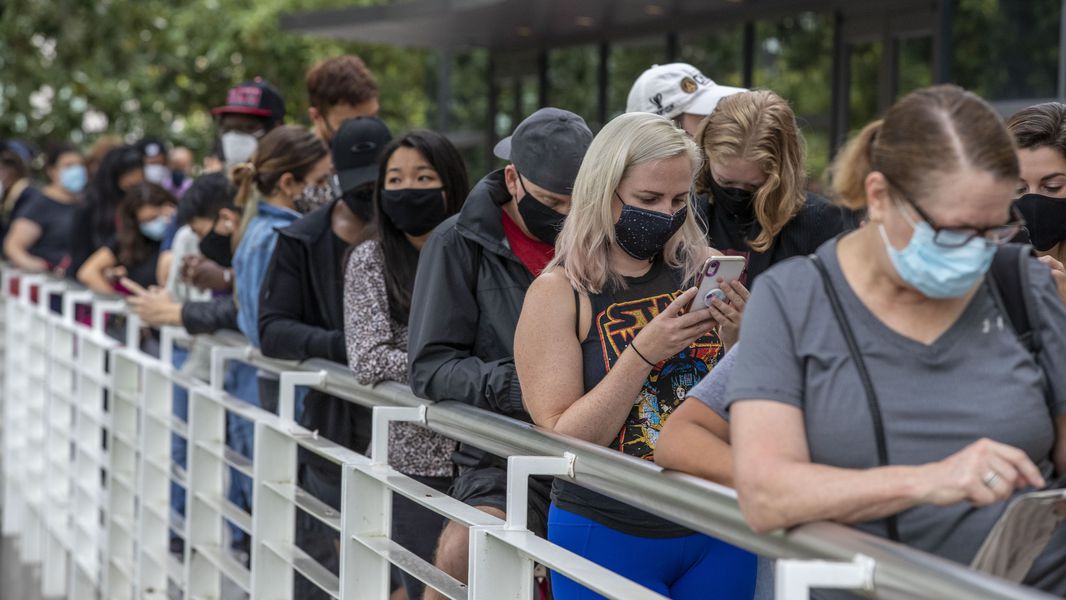 10/12/2020 – Atlanta, Georgia -A long line is formed as citizens wait to cast their ballot during the first day of early voting at the High Museum of Art in Atlanta’s Midtown community, Monday, October 12, 2020. (Alyssa Pointer / [email protected])
10/12/2020 – Atlanta, Georgia -A long line is formed as citizens wait to cast their ballot during the first day of early voting at the High Museum of Art in Atlanta’s Midtown community, Monday, October 12, 2020. (Alyssa Pointer / [email protected])
By Mark Niesse
A federal judge has denied an effort to require higher numbers of emergency paper ballots at Georgia polling places.
U.S. District Judge Amy Totenberg on Monday ruled against a request by Common Cause Georgia to ensure that voting could continue on backup paper ballots when technical difficulties occur.
Common Cause, an organization that advocates for fair elections, had filed an amicus brief urging Totenberg to provide enough paper ballots for 40% of registered voters on Election Day.
During the first day of early voting Monday, problems with voter check-in tablets contributed to long lines, but poll workers didn’t transition to emergency paper ballots.
Totenberg said she wouldn’t intervene, noting that election officials could choose to provide more backup paper ballots than the minimum required by a state elections rule, enough for 10% of registered voters.
The request “invites the court to plunge into the task of advising election officials on precise details of election administration, a function that is vested in the state defendants’ and local election superintendents’ discretion,” Totenberg wrote.
The State Election Board rule gives county election supervisors the authority to decide when to use emergency paper ballots when waiting times exceed 30 minutes, touchscreens are unavailable or power outages disrupt voting.
“We are disappointed that the court did not grant the relief we requested,” said Aunna Dennis, executive director for Common Cause Georgia. “It’s clear that the demand for these ballots will be extremely high in this election and will far exceed the statutory minimum of 10%.”
Totenberg’s decision on emergency paper ballots follows her other recent decisions on Georgia election administration.
She denied an effort to switch Georgia from voting touchscreens to hand-marked paper ballots, but a previous order required updated paper backups of voter registration lists and absentee ballot information at voting locations.
Read the original story on AJC.com.











